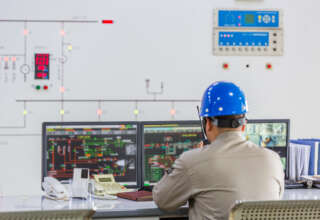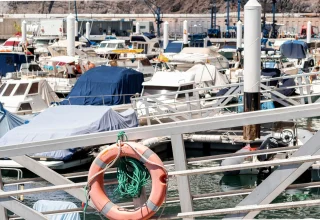Falling objects such as tools or work materials on a construction site can expose workers from minor injuries like abrasions and cuts to severe injuries, like concussions and traumas.
This becomes a severe concern when workers perform tasks on scaffolds and overhead areas that involve pulling, pushing, or prying, and using power tools.
According to the bureau of labor statistics of the US department, more than 42,400 workers struck by falling object each year and cause nearly 116 injuries each day.
The solution is simple: Be attentive and implement active safety measures that can mitigate the risk of injuries. You can start by taking a look at the valuable resources from 360training. Here are five effective strategies by which you can achieve a safe worksite:
Place Warning Signage
Any worksite where the chances of falling objects exist, employers must use adequate warning signs not just for workers, but also for other people who enter around. You can have verbal communication and meetings between employees to ensure overall workplace safety. Also, assign an employee to ensure the safety of visitors along the way.
Be Careful While Moving Loads
Construction sites involve heavy pieces of equipment like aerial lifts and scissor lifts to lift and move loads or people. While they are a less time-consuming process, they can get hazardous because of improper handling. For instance, crushing while moving objects falling from vehicles because of the wrong usage of a catapult.
Situations like improper fixation of machinery, unsafe loads, exceeding weight limits can also cause severe accidents. Workers can get musculoskeletal disorder because of poor working postures while performing tasks. Other possible causes are poor mechanical design poor workplace design, malfunction of the signaling system, misuse of equipment, loads insecurely attached, poor maintenance, untidy workplace, and operator error while erecting scaffolding or operating machines.
However, you can easily avoid threatening situations through scissor lift certification, which help develop a complete skill set in recognizing hazards and operating lifts.
Use Fences and Nets
Incorporating administrative controls is one of the most excellent ways to prevent injuries. This includes installation of wooden coverings on the sides of scaffolds or elevated work areas to prevent tools from falling over the edge.
Also, implementation of bars across storage areas to prevent loads from tumbling out, nets to trap falling objects, fences to keep workers safe from fall zones.
Personal Protective Equipment (PPE)
Using the above strategies doesn’t mean you skip safety wearable and personal protective equipment. Before heading to construction sites, ensure that you are all prepared head-to-toe to avoid potential injuries.
Safety wearable, including safety jackets, hard hats, hard shoes, and gloves must be inspected before every use and should be in good working condition. Employers should assure that all employees are provided with Personal Protective Equipment.
Keep Your Worksite Clean
Debris and tools lying around are one of the major reasons for injuries. To minimize this, workers must ensure the work areas are clean and organized. They should keep the tools and devices in their designated storage areas once the work is done. Situations like oil spills, lubricants, hazardous tools, screws and nails, debris, on the floor need to be cleaned up immediately to avoid slips and cuts.
Conclusion
Today, many companies recognize the hazards and associated risks while working on the ground or at height. The next step to protect your employees is to realize that safety from falling objects must be addressed beforehand. This will ensure the personal safety of employees, which in turn improves work efficiency!











